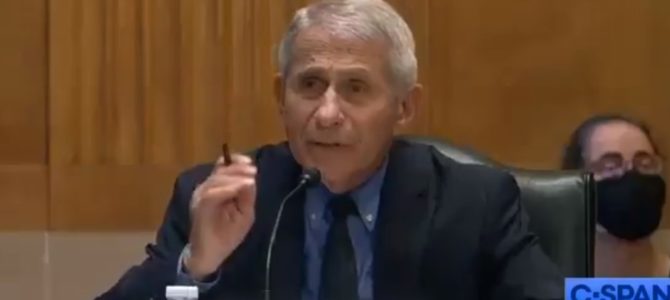Just weeks after insisting the contrary, Dr. Anthony Fauci admitted to Sen. John Kennedy on Wednesday that the Wuhan Institute of Virology may have engaged “gain of function” research funded by his National Institutes of Health (NIH), as there is “no way of guaranteeing” how U.S. taxpayer dollars were used.
On May 11, Fauci and Sen. Rand Paul engaged in a heated debate about NIH sending taxpayer money to the lab that researched bat-based illnesses and was investigated as a potential cause of the coronavirus pandemic. Fauci vehemently denied Paul’s assertion that “To arrive at the truth, the U.S. government should admit that the Wuhan Virology Institute was experimenting to enhance the coronavirus’s ability to infect humans,” and that the NIH’s money could have been used.
Fauci vehemently denied this, declaring in no uncertain terms that “The NIH has not ever and does not now fund gain of function research in the Wuhan Institute of Virology.”
Only now Fauci is far less certain than he was when speaking to Senate Committee on Health, Education, Labor, and Pensions earlier this month. During a hearing of the Senate Appropriations Committee, Kennedy pressed Fauci on NIH funding. Fauci’s only proof that taxpayer money was not used for “gain of function” research was that the lab never reported such findings.
When Kennedy asked whether it’s possible that the lab lied, or failed to report such research, Fauci conceded that “it’s impossible to guarantee” how the grant money was being used. This is a far cry from the firm denial he made to Paul.
Upon further questioning from Kennedy, Fauci admitted that the NIH “generally always trust the grantee to do what they say, and you look at the results,” but “I cannot guarantee that a grantee has not lied to us because you never know.”
Fauci now admits that "there's no way of guaranteeing" American taxpayer money he routed to the Wuhan virology lab didn't fund "gain-of-function" research pic.twitter.com/fNsGXWbH79
— Tom Elliott (@tomselliott) May 26, 2021









